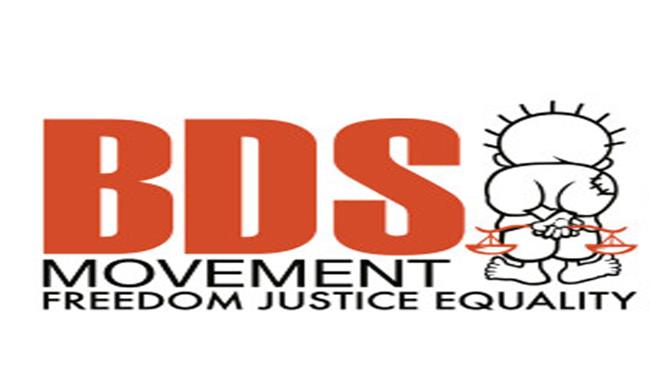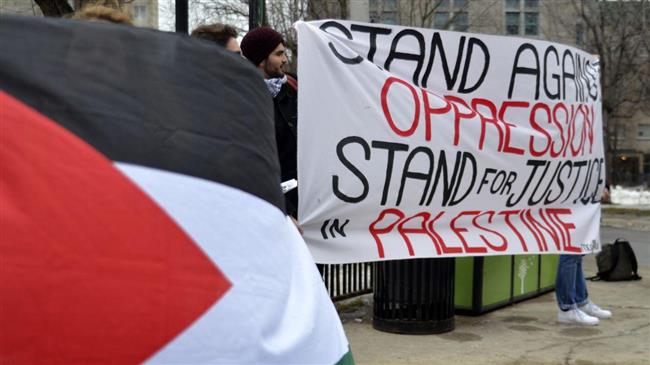Canada’s NDP endorses ban on Israeli products from settlements, arms embargo
Members of a social democratic federal political party in Canada have voted overwhelmingly in favor of a boycott of products from illegal Israeli settlements in the occupied Palestinian territories, as well as an arms embargo on the Tel Aviv regime.
Over the weekend, New Democratic Party (NDP) members endorsed a motion brought forward by a coalition of Palestinian and Jewish activists, which called on the party to amend its policies to include an embargo on settlement goods as well as arms sales to Israel.
The decision came after years-long attempts within the party demanding that the NDP take a clear stance on the Israeli-Palestinian conflict.
“The adoption of this motion today was a result of a groundswell of support from the grassroots membership,” Amy Kishek, one of the lead organizers for the Justice and Peace in Israel Palestine Resolution said at the NDP convention.
She added, “Not only is this position hugely popular with the NDP membership, but it is something that is supported by the vast majority of the Canadian labor movement as well as the Canadian population at large.”
“The adoption of this policy today firmly positions the NDP as one of the few parties demanding the end of Canada's support for illegal settlements and suspending the flow of weapons to and from Israel until Palestinians are free,” Geneviève Nevin, another organizer behind the resolution, said.
“In a time of unparalleled and intersecting social, environmental, and economic crises, it is of paramount importance that the NDP stand with and take direction from marginalized communities and those fighting for peace and justice everywhere,” she pointed out.
Last month, a group of more than 200 scholars released a definition of anti-Semitism that explicitly excludes efforts to boycott the Tel Aviv regime, including those of the international anti-Israel movement of Boycott, Divestment, and Sanctions (BDS) as anti-Semitic.
They issued the Jerusalem Declaration on Anti-Semitism just over a week after a statement by a liberal group of Jewish scholars called Nexus Task Force said that the measures applied to Israel were not necessarily anti-Semitic.
“Boycott, divestment, and sanctions are commonplace, non-violent forms of political protest,” according to the Jerusalem Declaration.
“In the Israeli case, they are not, in and of themselves, anti-Semitic,” it added.
The BDS movement was initiated in 2005 by over 170 Palestinian organizations that were pushing for “various forms of boycott against Israel until it meets its obligations under international law.”
Thousands of volunteers worldwide have since joined the BDS movement, which calls for people and groups across the world to cut economic, cultural and academic ties to Tel Aviv and help promote the Palestinian cause.
Dec. 21: ‘Axis of Resistance’ operations against Israeli occupation
Spain jurists demand ties with Israel ties be cut
VIDEO | Press TV's news headlines
VIDEO | Iran honors top Science Olympiad medalists
VIDEO | Austrians arrested at Gaza protest in Vienna
10 killed in bus crash in western Iran
VIDEO | One-man-band journalism with Civili
5 Israeli forces killed as Palestinian fighters face up to regime’s war machine





















 This makes it easy to access the Press TV website
This makes it easy to access the Press TV website